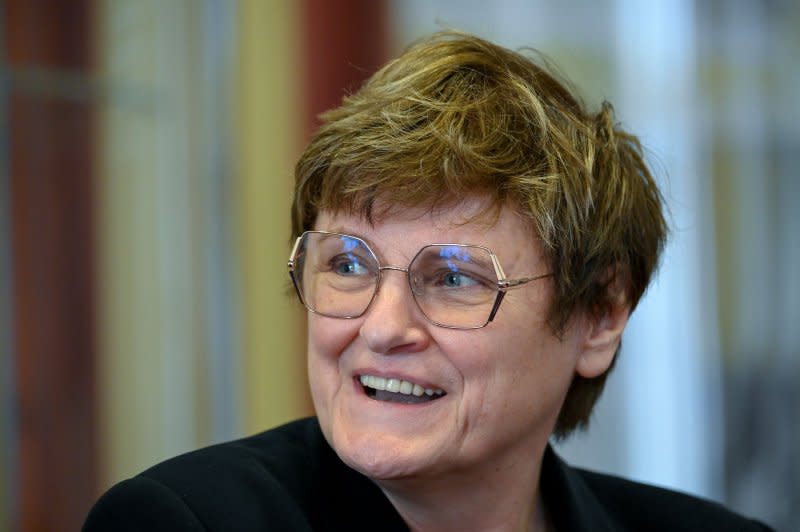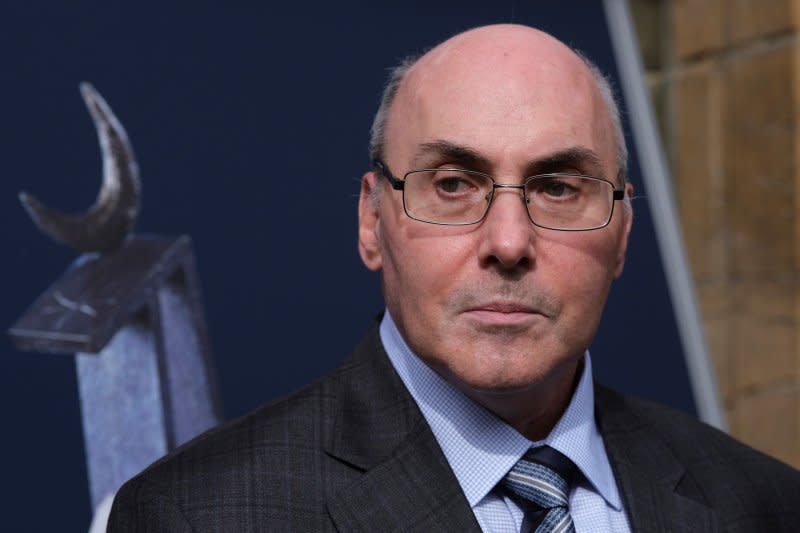Americans Katalin Kariko, Drew Weissman win Nobel Prize in medicine for COVID-19 vaccine work

- Oops!Something went wrong.Please try again later.
- Oops!Something went wrong.Please try again later.
Oct. 2 (UPI) -- Two American scientists were awarded the Nobel Prize in Physiology or Medicine on Monday for their work on the technology that led to the breakthrough mRNA vaccines used to protect against COVID-19.
The Nobel Assembly at the Karolinska Institute in Stockholm jointly selected Katalin Kariko and Drew Weissman to share the prize for "their discoveries concerning nucleoside base modifications that enabled the development of effective mRNA vaccines," the Nobel Prize announced in a news release.
Unlike traditional vaccines, messenger RNA technology works by producing molecules of a virus for which the body then creates matching proteins so that the immune system can recognize and find a way to attack and kill that virus.
Working together at the University of Pennsylvania in the early 2000s, Kariko and Weissman were able to get around the problem of unwanted inflammation seen in animal testing of the technology to produce large amounts of these proteins.
"Kariko and Weissman noticed that dendritic cells recognize in vitro transcribed mRNA as a foreign substance, which leads to their activation and the release of inflammatory signaling molecules. They wondered why the in vitro transcribed mRNA was recognized as foreign, while mRNA from mammalian cells did not give rise to the same reaction," the institute said.

They found they could virtually eliminate the inflammatory response by producing and using different variants of mRNA, each with unique chemical modifications to their bases and immediately were aware of the profound implications of the use of mRNA as a treatment.
The pair's "seminal results" published in 2005 represented a "paradigm change in our understanding of how cells recognize and respond to different forms of mRNA," the institute said.
In further studies published in 2008 and 2010, Kariko and Weissman showed that the delivery of mRNA created with base modifications boosted protein production significantly when compared with unmodified mRNA.
Kariko and Weissman's findings that base modifications reduced inflammatory responses and increased protein production removed two of the most important blocks on clinical use of mRNA.
The breakthrough led to vaccines against Zika virus and coronavirus cousin MERS-CoV.
When COVID-19 emerged in early 2020, Moderna and Pfizer-BioNTech each developed a base-modified mRNA vaccine encoding the SARS-CoV-2 surface protein in record time with shots providing 95% protection from serious illness going into arms before the end of the year.
The rapid rolling out of the vaccines, along with others based on different methodologies, saw more than 13 billion COVID-19 vaccine doses administered worldwide, saving millions of lives, preventing severe disease in many more and allowing societies to reopen and return to normal.
"Through their fundamental discoveries of the importance of base modifications in mRNA, this year's Nobel laureates critically contributed to this transformative development during one of the biggest health crises of our time," the Nobel Assembly said.
The "impressive flexibility and speed" with which mRNA vaccines can be developed paved the way for using the platform for vaccines against other infectious diseases and potentially to deliver therapeutic proteins and treat some cancers in the future.

